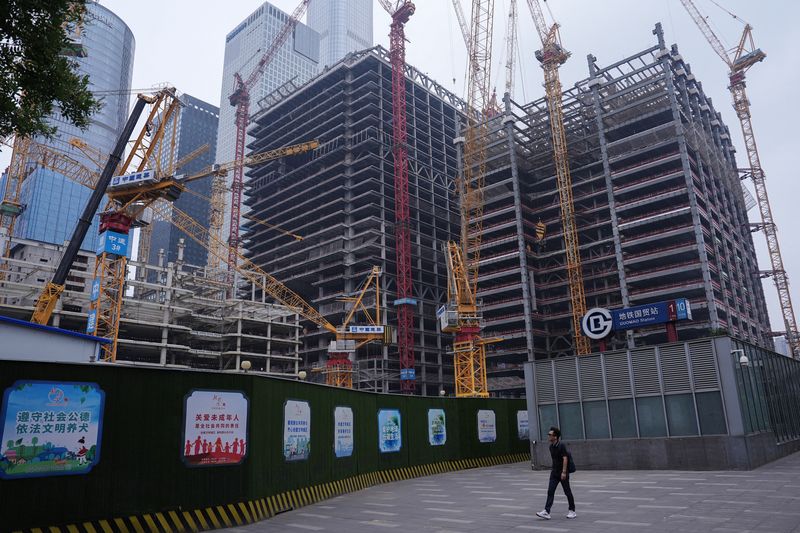By Kevin Yao and Joe Cash
BEIJING (Reuters) – China said on Saturday it will “significantly increase” government debt issuance to offer subsidies to people with low incomes, support the property market and replenish state banks’ capital as it pushes to revive sputtering economic growth.
Without immediately providing specific figures, Finance Minister Lan Foan told a news conference the central government has ample room to issue more debt and that there will be more “counter-cyclical measures” this year.
Fiscal stimulus measures in China have been the subject of intense speculation in global financial markets after a September meeting of the Communist Party’s top leaders, the Politburo, signalled an increased sense of urgency about mounting economic headwinds.
Chinese stocks reached two-year highs, spiking 25% within days since that meeting, before retreating as nerves set in given the absence of further details on the government’s additional spending plans.
Reuters reported last month that China plans to issue special sovereign bonds worth about 2 trillion yuan ($284.43 billion) this year as part of fresh fiscal stimulus.
Half of that would be used to help local governments tackle their debt problems, while the other half will subsidise purchases of home appliances and other goods as well as finance a monthly allowance of about 800 yuan, or $114, per child to all households with two or more children.
Separately, Bloomberg News reported that China is also considering injecting up to 1 trillion yuan of capital into its biggest state banks to increase their capacity to support the economy, primarily by issuing new sovereign bonds.
Additional debt issuance in China is typically subject to formal approval by its rubber-stamp parliament.
The central bank in late September announced the most aggressive monetary support measures for the economy since the COVID-19 pandemic, including numerous steps to help pull the property sector out of a severe, multi-year slump, including mortgage rate cuts.
However, while the measures have lifted Chinese share prices, many analysts say Beijing also needs to firmly address more deeply-rooted structural issues such as boosting consumption and an over-reliance on debt-fuelled infrastructure investment.

